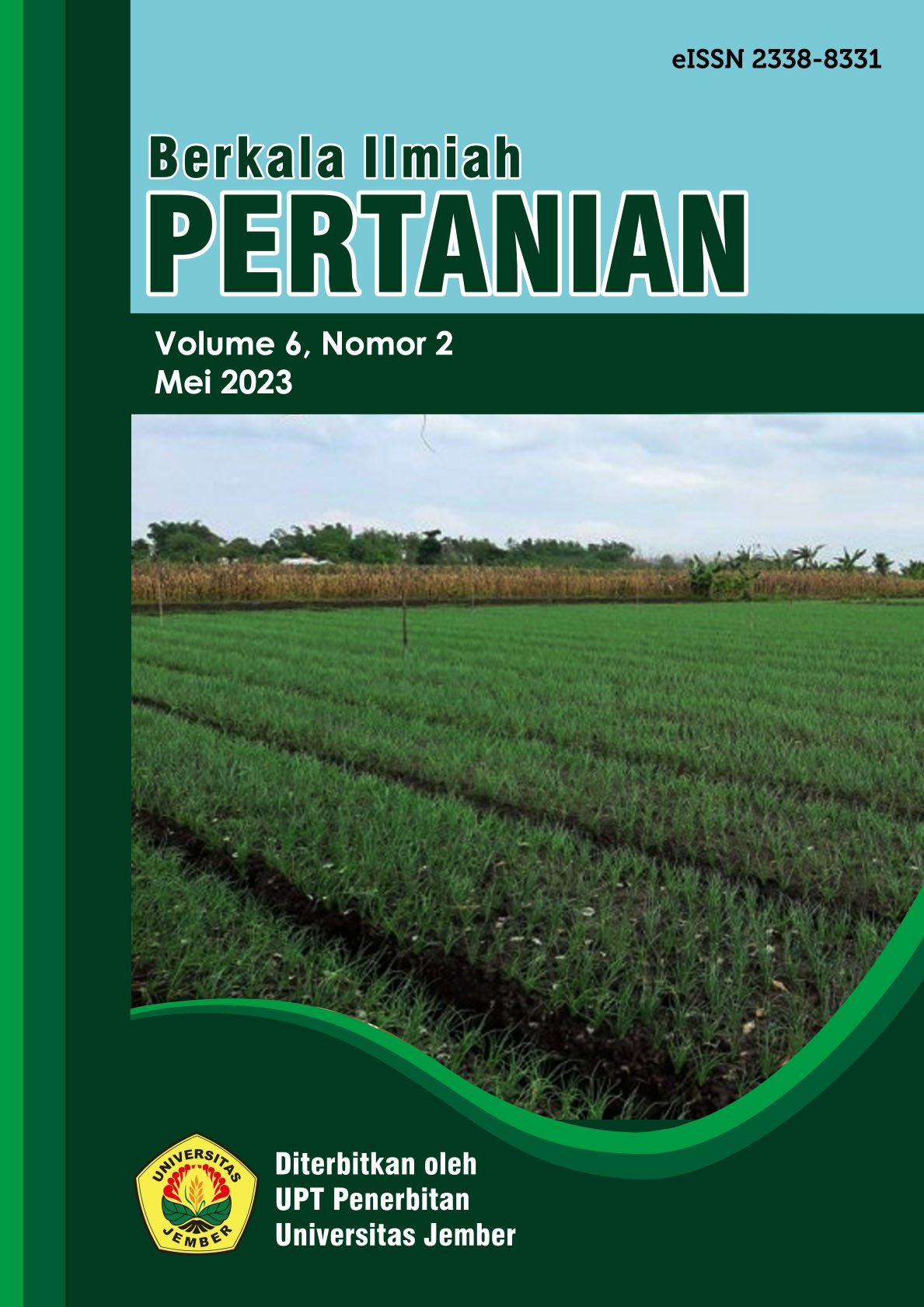Uji Keefektifan Ekstrak Puntung Rokok dalam Pengendalian Larva Spodoptera Litura Pada Tanaman Selada
Abstract
The attack of Spodoptera litura larvae resulted in up to 75% damage to leaves on plants. The main use of synthetic pesticides has a negative impact on the environment and health such as decreasing the level of human immunity. To reduce this impact, there is a need for alternative control solutions that are more environmentally friendly. Cigarette butts contain nicotine, phenol, and eugenol. So that cigarette butts have the potential to be used as an alternative insecticide. Based on this, it is deemed necessary to conduct research to determine the effectiveness of cigarette butts as an insecticide. The aim of this study was to determine the effect of the concentration of insecticide on cigarette butts on mortality and speed of killing of Spodoptera litura larvae. The method used in this study was a Completely Randomized Design (CRD) with one factor, namely the concentration of cigarette butt insecticides with four treatments and repeated five times so that there were 20 experimental units. The treatments were P1 control, P2 at 10% concentration, P3 at 30% concentration, and P4 at 50% concentration. The results showed that the application of cigarette butt insecticides had a significant effect on the mortality rate and speed of killing of Spodoptera litura larvae. The P4 treatment gave the most effective results where within 24 hours after application it could kill >50% of the larvae tested and the rate of killing speed obtained was 1.7 birds per hour.
Authors who publish with this journal agree to the following terms:
1.Authors retain copyright and grant the journal right of first publication with the work simultaneously licensed under a Creative Commons Attribution-NonCommercial 4.0 International License that allows others to share the work with an acknowledgement of the work's authorship and initial publication in this journal.
2.Authors are able to enter into separate, additional contractual arrangements for the non-exclusive distribution of the journal's published version of the work (e.g., post it to an institutional repository or publish it in a book), with an acknowledgement of its initial publication in this journal.
3.Authors are permitted and encouraged to post their work online (e.g., in institutional repositories or on their website) prior to and during the submission process, as it can lead to productive exchanges, as well as earlier and greater citation of published work (See The Effect of Open Access).

















